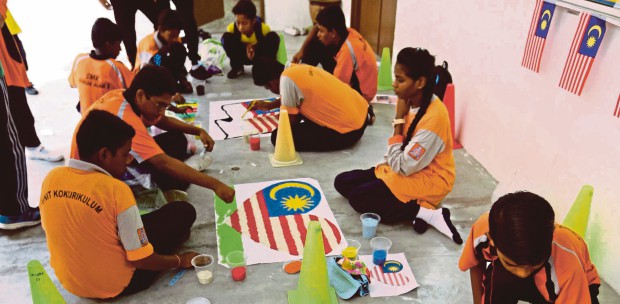AT work, and in life generally, we simply need to think critically.
In Malaysia, sometimes we don't think with a critical mind. As we navigate out into a post-pandemic world, there will be troubles at work. And there are also going to be tense moments in a multi-ethnic society like ours. So, it is imperative that we become informed and empowered citizens, for both our life as Malaysians and for our career and work-life.
What is an empowered and informed citizenry?
In any nation, there are a plurality of viewpoints and an assortment of voices jostling to be heard. Establishments like the media, civil society movements, educational institutions and so on, function like vehicles for the flow of information to people.
The smooth flow of such information permits the people of a country to better exercise their rights of citizenship, with participation, criticism and voting. And, like everything else in life, the more informed you are, the better equipped you become to actively partake in any decision-making process.
For this to happen, you must cultivate critical thinking.
Simply put, it is about developing the ability to think rationally, and to understand the logical connection between ideas. It requires you to reason and not just accept. You must actively learn about things, rather than just passively assimilate information.
For example, critical thinkers at a workplace thoroughly question ideas and assumptions.
They won't simply accept things at face value. Instead, they will always try to figure out if an idea or a policy is actually good for the company as well as themselves. And most significantly, they are open-minded and they will take any and all feedback.
With regards to your status as a citizen of Malaysia or any country, the same need for critical thinking applies.
Only when you can identify, analyse and evaluate issues systematically, rather than relying on parochial indoctrination, you actually empower yourself to have informed opinions.
When those in power use draconian and outdated laws to silence dissenters and quell critics, then you know they want to disempower and block the flow of information, so that you cannot make informed choices about all the things that matter.
If you truly wish to be empowered, you cannot rely only on the accumulation of facts or on something that you have learnt in the past, and make decisions based purely on that. The world is dynamic, and every situation needs to be looked at contextually.
This last pandemic-stricken 18-months have given all of us many lessons, hasn't it?
But arguably, the most important lesson is that you cannot rely on established theories and beliefs. Everything is fluid, and being able to think rationally and critically, is possibly the most significant skill anyone can have right now.
So, how do you become a critical thinker?
This ability only gets developed when you properly observe, analyse, interpret, reflect, and evaluate what is happening around you. And, you must be willing to consider new ideas.
Much of the education that we offer our people is based on rote learning.
Rote learning is the memorisation technique that is based on repetition. It is the idea that the more you repeat any given fact, the more you will be able to quickly recall the meaning of it.
You remember? This is how most of us passed many of our exams. I also call it "programming".
But to be a critical thinker, you need to be able to consider any topic in an objective and inquisitive way. You have to analyse and interpret each issue, devoid of any propaganda or brainwashing that you have been fed before.
Here's an example. Let's take something that frequently happens in our country.
Say, a political activist gets detained for their public comments or satirical works questioning someone in power. Conventional narrow mindedness would suggest that this person should be brought to book, for attempting to create disharmony in a plural society.
This is a dogmatic interpretation of how to maintain balance in a multifaceted society.
But, if you are a critical thinker, you will be open to identifying the different arguments, in relation to this particular issue. You will evaluate them to determine how strong, or valid they are.
Critical thinking will help you recognise any weaknesses a particular point of view has. And, you will begin to see the implications and consequences behind any argument.
You start seeing issues contextually, and this will allow you make decisions rationally.
Are your decisions for your life, your work, the safety of your family, the growth of your career, the longevity of your business, and the survival of our nation, made after you have critically analysed, reflected and evaluated relevant issues?
Or, do you pass judgement because "…this is just the way things are done here" or worse, "…someone told me that this is the way things should be".
Looking at the bigger picture and considering the global crisis, it is vital that you become informed and empowered to make decisions based on clear, reflective, and critical thought.
You want a better Malaysia and better work-life? Start by thinking critically.
Shankar R. Santhiram is managing consultant and executive leadership coach at EQTD Consulting. He is also the author of the national bestseller "So, You Want To Get Promoted?
The views expressed in this article are the author's own and do not necessarily reflect those of the New Straits Times






